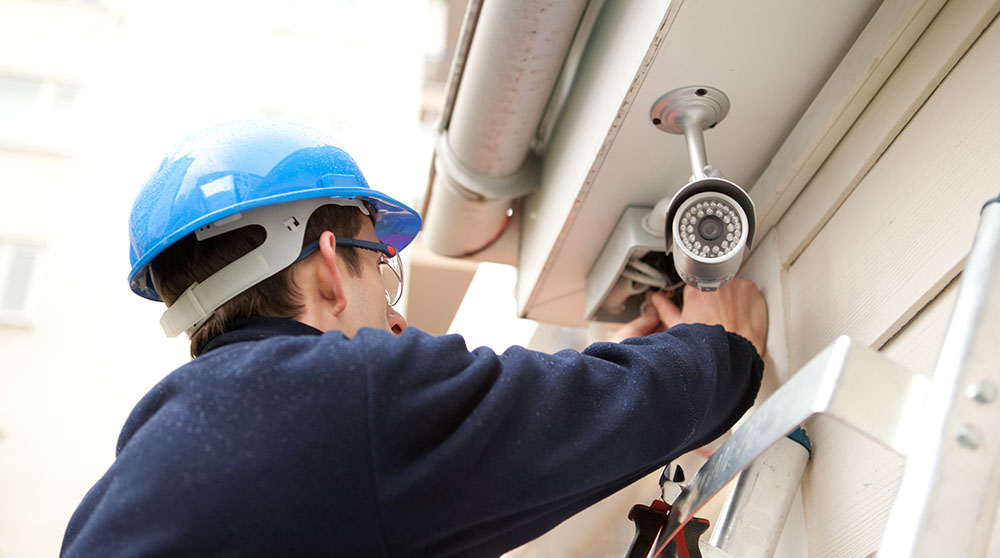9 security camera tips for your business.

As your business grows and evolves in the digital age, ensuring the safety and security of your premises is paramount. One effective tool in your security arsenal is a surveillance camera system. Security cameras not only act as deterrents to potential criminals, but also provide valuable evidence in the event of an incident. Are you doing an audit of your security system or considering installing security cameras? Follow our nine security camera tips to optimize your system and enhance your security.
Assess your needs. Before purchasing new or additional equipment, look at your property. Determine areas that need monitoring, like doors, windows, loading docks, alleys, and other entry points. Pinpoint storage areas, cash registers, or other spots with technology that could be targets. The radius of your cameras should cover these locations without creating blind spots.
Invest in quality equipment. From bullet cameras to dome cameras, Internet Protocol (IP) to turret cameras, there are many options for businesses to consider. Read up on the benefits of each type and always put quality first. Higher resolution cameras provide clearer images and facilitate the identification of individuals in more detail. And while budget constraints may be an issue, strike a balance between cost, up-to-date technology, and quality for the best investment.
Use proper camera placement. Good camera placement is essential for maximizing coverage and minimizing blind spots. Strategically position security cameras to cover the vulnerable areas you identified above. Install them at an adequate height with a wide, unobstructed view.
Light your surroundings. Consider the lighting conditions in the areas you intend to monitor. Some cameras perform better in low-light or no-light environments. Others require illumination. If added lighting is needed, install fixtures near the camera and throughout your space to enhance the detail and quality of your security camera footage.
Secure your network. Modern security cameras are often connected to a building’s network for remote access and management. It’s essential to secure your network to prevent unauthorized access to your surveillance system. Implement strong passwords and keep firmware updated to protect against potential vulnerabilities.
Set up data storage. Security footage after a break-in won’t be of any use if there’s not enough storage to keep it until the next day or the next week. Because of the sheer volume of footage and data, you’ll need to look at your data storage systems. Invest in reliable storage solutions that can handle the volume of data generated by your cameras. Consider using backup systems or off-site storage options to prevent data loss due to equipment failure, theft, or tampering.
Test and maintain equipment. Maintaining your systems will ensure long-term effectiveness. Schedule routine inspections, cleanings, and updates to keep cameras in optimal condition. Regularly test camera functionality, including pan, tilt, zoom, and motion detection features.
Display surveillance signs. To further deter crime, display signs indicating the presence of surveillance cameras around your space. Visible signage warns patrons and thieves that their actions are being monitored. It can significantly reduce the likelihood of intrusions or criminal activity.
Inform your local, independent agent. Because security cameras take a proactive approach at reducing property damage or claims, they could also help with your insurance rate. Inform your insurance agent of your security system or other safety measures you’ve implemented. They can offer additional safety advice for business owners and talk about ways you can save.
Our security camera tips can help businesses protect their premises, teams, and assets in modern times. Talk to a local, independent agent about security measures for businesses and our comprehensive coverage options.







